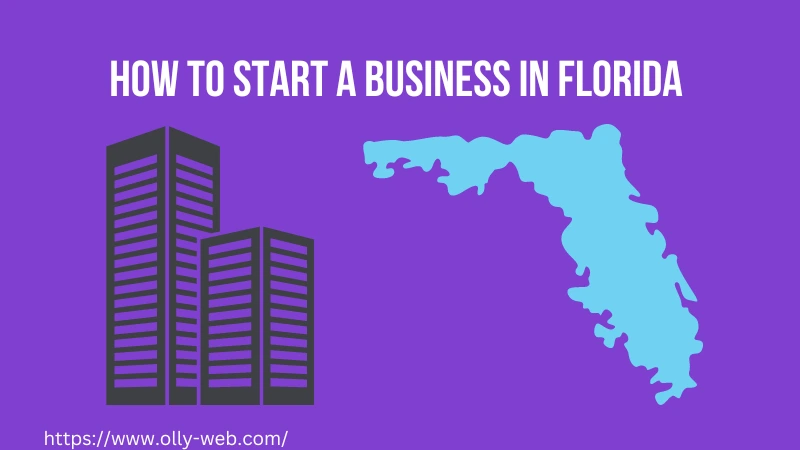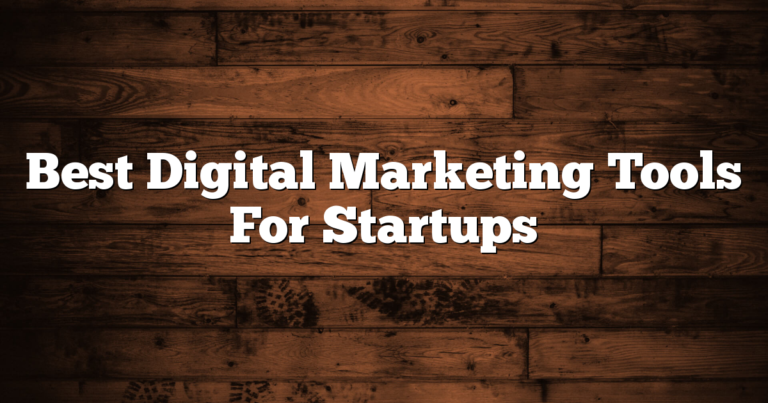How to Start a Business in Florida – (A Complete Guide 2024)

We have compiled a list of resources that cover how to start a business in Florida. Once you have decided to start a business in Florida, the first step is establishing a legal structure. You will need to form a corporation, LLC, or other entity. You will also need to register with the IRS and file reports with the state of Florida. You can consider hiring a payroll service if you need clarification on the paperwork.
How to Start a Business in Florida
- Doing market research before writing a business plan
- Name your business
- Prepare a business plan
- Obtaining an EIN
- Forming a corporation or LLC
- Get the necessary licenses and permits for your company
- Distinguish the business account from the personal account
- Obtaining a business tax receipt
- Recognize the role your finances play
- Acquire Financial Support
- Create a website for your business
- Promote your Business
1. Doing market research before writing a business plan
Regardless of the type of business, market research is critical to its success. It helps determine the viability of a new product or service, the size of the market, and pricing. It also helps you define your target audience. By doing so, you can establish a solid foundation for your business. In addition to establishing a sound foundation, a business plan is essential for obtaining loans and investors.
When writing a business plan, it is essential to perform market research early on in order to identify potential opportunities and learn about the marketplace and your competitors. Market research also helps you populate your business plan with information about your target market and your niche, as well as trends and future trends.
Market research can be done through a variety of tools and methods. Combined with a comprehensive business plan, the results will result in a thorough plan covering all major aspects of your business. This will include demand, pricing, target market size, and location information. If you have no physical location, it is possible to reach your target audience through e-commerce, which is a growing trend.
Doing market research is vital for a successful small business. The data you gather from this process will help you determine whether or not your business idea will succeed in the marketplace. It will also provide information on the type of customers and the best-selling methods for your product. You can conduct market research online by conducting keyword searches and reviewing your competitors' marketing materials. Alternatively, you can contact vendors that sell similar products or services to your competitors.
2. Name your business
Most of the rest of our checklist for establishing a business in Florida will only be useful with a name for your company. For more information on Florida's naming regulations, including whether or not you must use your name for your business and whether or not you must disclose certain information in your advertisements, check out the Fictitious Name FAQ. The Business Name Generator is a useful tool for creating creative and memorable business names.
Compile a shortlist of appealing business name options and conduct an online search to see if any other companies are utilizing those names. The next step is to see if the names you prefer have already been trademarked by conducting searches at the Florida Division of Corporations and the United States Patent and Trademark Office.
3. Prepare a business plan
A business plan isn't required to register a company in Florida. A business plan is not required in Florida to file for a business license, but it is strongly suggested. You need a business plan to stay on track, know where you're going, and see where your business is going. The bank loan officer will want a business plan if you need to apply for a loan. A business plan is easier than you might imagine, even if you have yet to learn how to write one. Said, a business plan is an explanation of your company's purpose. Your business plan for starting the business in Florida should include the following:
- An explanation of what you do.
- A list of your products or services.
- A description of your short and long-term goals.
This should include the results of any market research you've done, recommendations for a good spot to open an office, an estimate of your startup costs, and an analysis of where you stand financially.
To put it simply, a business plan is a written document that details:
- A Profile of the Company
- Study of the Market
- Organizational and Management Theory
- Merchandise and services
- Differentiating Groups of Customers
- Advertising scheme
- Techniques for facilitating operations and managing supplies
- Funding Strategy
4. Obtaining an EIN
Obtaining an Employer Identification Number (EIN) is essential for most businesses in Florida. This number works like a social security number but is unique to the business. The number is also used to file taxes, including payroll taxes and sales tax. The number is also required to open a bank account for your business. You can obtain an EIN online for free or contact the IRS directly.
You can apply for an EIN for your business for free or pay $75 to $150 for a pre-approved EIN. Obtaining an EIN is fast and easy, and you can even complete the application on the phone or online. The process will take about one hour; if you apply online, you can save time and money.
In addition to applying for a Florida EIN, you will need to register your business in Florida with the Department of Revenue. This is necessary if you intend to hire employees. This is because you need to pay payroll taxes to the state. You will also need to obtain a Reemployment Tax Number (RETN), which will help you pay payroll taxes.
Obtaining an EIN is important for any business, no matter how small. You will need to provide it if you plan to hire employees or file tax returns with the IRS. This will make getting the best tax relief for your business easier. The number is also required to file partnership return files and excise tax reports. You need to provide employees with a social security number if you have employees.
If you're starting a new business in Florida, you'll also need to obtain a registered agent. The registered agent must have a Florida address for the company. The office will then forward any official government documents to the registered agent. It is a convenient option for many start-ups. Make sure you keep the address up-to-date so the registered agent can receive mail.
You'll also need a business license. Florida business licenses generally take a few weeks to process. A license will be required if you're planning on selling or renting goods or services to the public. The license must be posted where the business will be open to the public.
5. Forming a corporation or LLC
When you're planning to start a business in Florida, it can be helpful to have a business plan. While you're not required to file one as part of your registration, a business plan can help keep the process organized and help you envision your company's future. Moreover, a business plan is important if you seek financing from a bank or obtain a small business loan.
First, you'll need to apply for an Employer Identification Number, or EIN, in Florida. This is different from your personal Social Security Number (SSN). Still, it is specific to your business and not to you personally. You can apply for one online or through the mail.
Next, you'll need to choose a name for your company. The name of your LLC must be distinguishable from other businesses. The state's Division of Corporations offers a search engine to help you find the best name. The search engine will show you a list of business names available for registration. You can also register your business name using one available method through Sunbiz Florida. Each
registration method has its purpose, and some may be required by law depending on your business structure.
While the formation of an LLC in Florida is similar to that of a corporation, the requirements are different. A domestic LLC must pay a $125 filing fee. An LLC must also pay a $25 fee for its registered agent. In addition, you must also obtain necessary licenses and permits, such as a seller's permit. Finally, you should also register your company name with the state's tax agency.
When choosing your business structure, it is important to consider your industry and type of business. Some industries require a particular business structure, while others don't. You can also choose to be a for-profit or a not-for-profit business. If you're starting a business for profit, you may consider a corporation because it limits your liability. However, corporations can be expensive and time-consuming. However, they can be beneficial for larger businesses or companies that want to go public.
Once you've determined whether you want to start a business in Florida, you'll need to get the proper licenses and permits. Florida has different licenses for different types of businesses. For example, if you plan to sell alcohol, you'll need a CMB license. Similarly, if you're planning to sell daycare services, you'll need a JDBW license.
6. Get the necessary licenses and permits for your company
In Florida, registering as a certain business structure is an alternative to obtaining a state-issued “generic business license.” However, operating a firm in other sectors requires special permission from the government.
The State of Florida's Department of Agriculture and Consumer Services and the Department of Business and Professional Regulation oversees licensing. It's also possible that you'll require an operating license from a Florida state agency or one of these other organizations. Given that Florida lacks a centralized licensing system, it is up to you to carefully scour the various sites listed here to find the specific license details you need.
7. Distinguish the business account from the personal account
When you use the same bank account for both your business and your finances, you expose your assets, such as your home, car, and other belongings, to the possibility of being seized in case of a business lawsuit. This is known as “piercing the corporate veil” in the legal world of business.
Advantages include simplified bookkeeping and tax reporting, as well as the security of your assets by separating them from the company's.
An organized accounting system makes it much easier to report financial information to tax authorities yearly. Banking and charge card transactions can be downloaded directly into high-quality accounting software, streamlining the bookkeeping process. Find out why accounting is necessary and how to get started right now. Alternatively, you could seek a professional accountant specializing in business accounting and tax matters such as payroll and sales tax.
8. Obtaining a business tax receipt
Obtaining a business tax receipt is a must-have for any business. It can be obtained in two ways: through online submission or mail. When applying for a business tax receipt, you must provide information about your business, including the business's name, federal tax ID number, Social Security card, and industry code. You must also provide proof of professional certifications.
Business tax receipts can be obtained online through the county's website. This process typically takes a couple of weeks. Still, you can obtain one sooner by obtaining a business license from the county in which you intend to operate. Once you obtain your business tax receipt, post it at the location where you intend to conduct business.
A business tax receipt is essential to the registration process. It gives your business the green light to operate and proves that you have been cleared to sell products and services. Once you obtain a business tax receipt, you will have proof that your business is legally registered.
To obtain a business tax receipt in Florida, you can complete an online application for a business tax certificate. The online application includes an interactive wizard to help you determine your tax registration requirements. Using an online application has several advantages, including the fact that you can easily view the status of your submission, autocompleted fields, and the ability to retrieve your registration certificate number. Alternatively, you can also submit a paper application.
In addition to the Business Tax Receipt, you must obtain a Certificate of Use (COU). This is a certificate that allows you to occupy a building. This certificate must be obtained by every business that requires a Business Tax Receipt.
9. Recognize the role your finances play
Whether starting a business as a sole proprietor, an LLC, or a corporation, it's always a good idea to separate your personal and business finances. Start on the right financial foot by opening a business bank account, applying for a company credit card, and hiring a business accountant whose advice you can use later. Additional funding may be required either at the outset or later on in the life of your business.
10. Acquire Financial Support
It's common knowledge that new businesses require finance to get off the ground. Still, there are several steps you'll need to do before you can start pitching investors and raising capital. Before looking for investors, you should thoroughly estimate your business's operating expenses. Use this information to determine which finance option is best for your Florida company. Next, make a comprehensive plan for your money and start spending wisely and systematically.
“bootstrapping” refers to financing a firm entirely from the owner's resources, such as savings and current income. Once your company is up and running, any profits should be added to the company to expand.
A good source of startup financing can be found in the form of loans from friends and family. It's smart to put your business dealings with friends and relatives on paper and set up a formal repayment schedule.
Grants for small businesses are interest-free loans for your company. A small business grant can be obtained by applying to a grantor.
Banks and other financial institutions are common places to look for small company loans. This form of financing needs payback but can provide enough money to cover initial fees and more.
11. Create a website for your business
The next step after settling on a name and logo for your company is to build a website.
Although having a website is crucial, some people may feel it needs to be in their grasp because they have no prior expertise in website development. While this concern was warranted in the early 2000s, the rapid development of web technology in the intervening years has greatly simplified entrepreneurs' lives.
Without exception, reputable companies today also have a web presence. It makes no difference to your online success if your company is small or operates in a different sector than the competition.
Maintaining a presence on social media is important. Still, it should be different from having your domain name for your business.
With the help of website creation tools like GoDaddy's Website Builder, even the most elementary websites can be put together in minutes.
12. Promote your Business
It's time to move from completing paperwork and studying regulations to something more fun but equally important; marketing. Ensuring your business is presented in the best possible light to your target audience is the final step before launching, so give yourself plenty of time to do it.
Schedule time as your launch date approaches to develop a marketing strategy to help you spread the word about your company and generate more sales. Writing out your marketing strategy will help you reach more people, expand your clientele, and maintain momentum over time.






